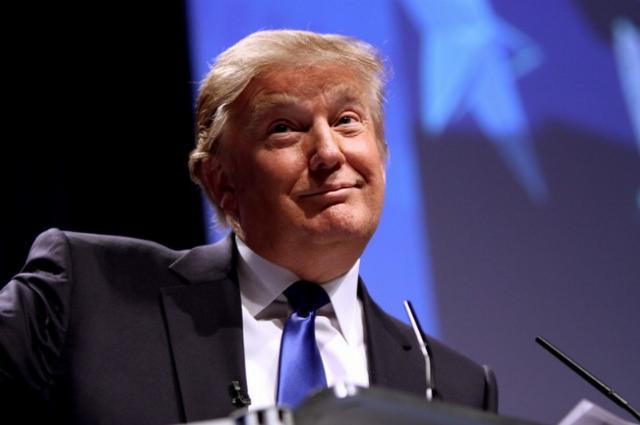Could it be that Trump really knows what he’s doing?
I was once asked who my favorite president was. “Harry Truman,” I blurted out. He got elected the same year that I was born. He is likable mostly because he was just an ordinary person, who had an abundance of common sense. Some historians say that the haberdasher from Missouri was picked to be FDR’s third running mate because it was obvious that Roosevelt couldn’t possibly survive his fourth term, and someone with presidential ability (especially when compared to Henry Wallace) had to be next in line.
I particularly like Truman’s quote: “I wish I had a one-armed economic adviser so he couldn’t say, ‘Well, on the other hand...’” In today’s world, we’re all focused on the impact of Trump’s tariff pronouncements. He can, of course, reverse his edicts just as easily as he put them out. But now we get to watch what happens. Stocks plunge! But so did interest rates. Hmmm.
My take on Trump’s methodology is that he first blows apart the status quo and then installs his new version. The clingers to the previous status quo (and I’m being kind) find that their hair is on fire. I’m sorry to disappoint the corrupt leftist media, but Mr. Trump is not targeting his personal cronies for the benefits of the current dynamic. He has a much, much larger picture in his vision.
Today’s big news is the “plunge” of the stock market over the last two days. Time to grab the green eyeshade and crunch a few numbers. This past February 4, the Dow was at 44,873. But when you use the online inflation calculator, this same amount is only 34,552 when expressed in 2020 dollars — a drop of 10,321.
An increased perspective of the tariff issue is developed as various sources are saying that foreign commerce accounts for only 15% of the U.S. economy. It is, however, particularly refreshing to see the subject of tariffs being added to the current political dialogue. Part of the emphasis of the consequences of tariff policy stems from the previous lack of discourse leading up to the present moment — almost as if tariffs were something new. The implication is that the perceived problem is the result of a long period of tariffs being ignored and thus losing conformity to modern conditions.
Trump, again and not by accident, has opened Pandora’s box and is now enjoying either numerous counteroffers or begrudging compliance with his efforts. The ball is obviously still in play, but the game has at least begun.
I take satisfaction in seeing that even the ChiComs care about their bottom line. This might be an embedded cultural characteristic: Chinese people being seriously inclined to pursue mercantile pursuits, unlike their commie fellow travelers, the Russians.
There is so much in the way of new developments that making precise pronouncements seems like a fool’s errand. The best that can be done is to illustrate the dynamics and historical perspectives of the process.

Image: Gage Skidmore via Flickr, CC BY-SA 2.0.





